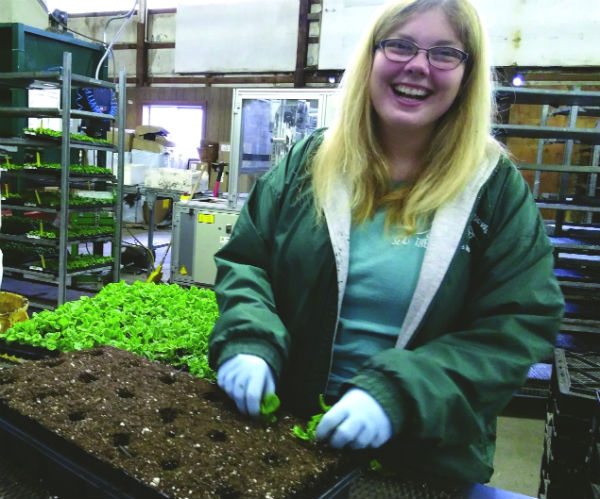
Growing Plants and Relationships — Karen Schneck 2018
“Plants are happiness.”
As she says those words, the passion Karen Schneck has for plants is undeniable.
“It’s so fascinating how plants can grow off of little stems,” Schneck says. “I just find great satisfaction in watching little plants take off like that. It’s something special and magical.”
Schneck is a senior at Kansas State University (K-State) and the 2018 GPN/Nexus Intern of the Year. Her love for flowers and gardening was passed down to her from her mother and grandmother. After learning about horticulture and greenhouses through 4-H and FFA (Future Farmers of America), “something just clicked” for Schneck and she realized she wanted to have a career working with plants. Her time at K-State has repeatedly confirmed she chose the right path.
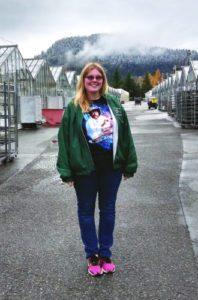 “All my classes have confirmed over and over again that I love plants and I want to grow plants,” Schneck says.
“All my classes have confirmed over and over again that I love plants and I want to grow plants,” Schneck says.
In June, Schneck’s passion led her to Skagit Horticulture’s facilities in Mount Vernon, Washington, as an American Floral Endowment Vic and Margaret Ball intern. Her six-month internship focused on learning the ins and outs of the propagation department. Schneck gained experience by growing liners with training from head grower Sharon Stapleton, head propagation grower Aditi Victor, supervisor Michelle Gaines, and section grower Jessica Steele.
“While working in propagation, I became aware of the level of care and observation that is put into plant development,” Schneck wrote in her essay when applying for Intern of the Year. “Every cell of a flat has a plant that is worth something, usually a significant amount of money. Even though there is loss worked into the calculation of finished plants, it does not make any plant less important. It adds another level of responsibility to the care of the plants.”
The Real Deal
In mid-August, Schneck was given the opportunity to work as the temporary propagation section grower. While initially intimidated by the offer, Schneck says a month- long intensive training with Steele helped her feel confident in her ability to care for the plants while the search for new growers began.
“I wasn’t completely scared but it was a huge learning experience,” Schneck says of her time as section grower for about a month. “That’s probably why I feel so confident in wanting to do propagation now. It was real actual experience.”
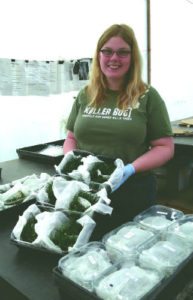 “There’s a lot of money in propagation and [Skagit was] willing to trust me with those new baby plants. It was a little weird at first, but I kept going and felt more comfortable. I would tell myself ‘I am a good grower, I can do this.’
“There’s a lot of money in propagation and [Skagit was] willing to trust me with those new baby plants. It was a little weird at first, but I kept going and felt more comfortable. I would tell myself ‘I am a good grower, I can do this.’
I got more confident knowing what to look for, getting more methodical and strategic.”
Working with Steele and Victor helped Schneck gain a better understanding of the skills required of a section grower in a production facility.
“One needs to be level headed, learn from mistakes quickly, and channel their energy and love into the task at hand,” Schneck wrote in her essay. “While plants mean a lot to me, I know being passionate about something will only take you so far. Being able to put meaning and use to a passion is what I have found to be the key thing that makes growers stand out.”
As section grower, Schneck advanced her watering skills and was introduced to using a backpack sprayer to apply foliar feed, allowed to observe the application of pesticides and fungicides, and given the chance to use beneficial nematodes.
She quickly settled into daily routines, beginning each day with a walk through looking for plants to be watered. Then she would start on projects for the day, either applying foliar feed, nematodes, scouting for pests, cleaning plants, cleaning the greenhouse, and other watering. Schneck learned to use just about all of her senses — listen to hear if the fans are on or if the irrigation clicks through; smell for odors that could indicate pathogens like Rhizoctonia; touching plants to feel how soft they are, and constantly looking for problems and never letting her guard down.
In addition, she was able to gain experience in the container field, transplanting, maintenance care for stock plants, inventory, marketing, sales, shipping, and even assisted with training the new section growers Tom and Abby Jensen.
“I have learned new levels of patience, a deeper respect for plants and the people who grow them, and an accelerated drive to achieve my goal of becoming a greenhouse grower,” Schneck says.
The internship was transformative because of the people at Skagit Horticulture, she says.
“Every individual in the greenhouse, from the head growers to the laborers, has made an impact on my life. I knew about all the people involved [in producing a plant] but actually seeing it was incredible. From being grown, cleaned, priced, loaded … so many hands are touching those plants and so many lives are being influenced by these plants. It was just mind blowing.”
“If I go somewhere and I see plant, I visualize what it took to get there. It’s this entire chain that is invisible to the consumer and I think that’s kind of sad. When I walk through a garden center I see stories and people.”
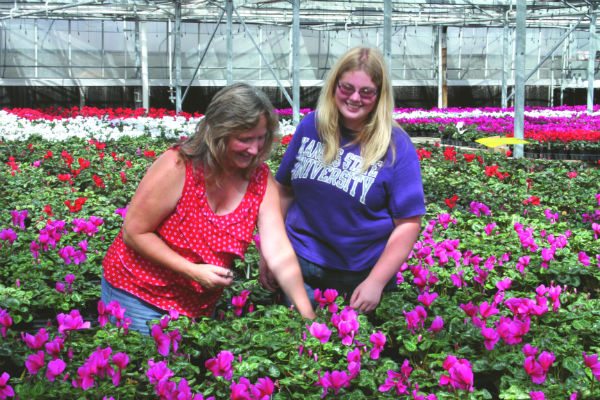
Looking Forward
Schneck sees ample opportunities in the horticulture industry to teach consumers about plant production and hopes to be part of a movement re-connecting plants and people.
“Plants are a huge trend. People are becoming more connected with plants,” Schneck says. “I think they are craving that connection with nature.”
At Kansas State University, Schneck participates in outreach programs and activities with children to get them interested and informed about plants.
“I hope that more young people will become inspired to join [the horticulture industry],” Schneck says. “At Cultivate, fear about an aging industry was pushed a lot. I hope the future is bright with young minds wanting to come into a plant-based industry.”
This passion for the horticulture industry and the people in it is evident in everything she does, says Chad Miller, co-advisor for the K-State Horticulture Club and associate professor in ornamental horticulture. In a fall plant ID course with Miller, Schneck was tasked with researching a genus of her choice and marketing it in a small, trade-show like presentation format. She chose gladiolus and wore a tropical looking outfit that had gladiola-like flowers on it to represent her presentation. She even crafted a couple play swords to demonstrate the foliage type.

Her enthusiasm for the industry shows in her active involvement in extracurricular activities, including the Horticulture Club, National Collegiate Landscape Competition Team Alpha of Clovia 4-H House, and the Collegiate 4-H.
“Without a doubt, Karen will be successful and a great addition to the horticulture industry,” Miller wrote in his recommendation letter. “Karen has certainly grown as an individual in the last year and her passion comes through in the classroom, the labs, extra curricular activities, and work experiences.”
Schneck will graduate in December and hopes to find a job within a propagation department at a company that places value on its employees and company culture “that makes me feel like I’m in a family, somewhere that cares who you are, cares about the quality of the plants, and cares that people get quality plants. And they’re not afraid of innovation or to learn new things and accept fresh minds.”
A Note From Nexus:
As we read the many nominations for the Intern of the Year award, I was reminded of the reasons Nexus sponsors this award. Around the Nexus office, we have the GPN covers for every one of the winners. They also are a constant reminder of the privilege and responsibility that we are afforded by choosing an outstanding student each year who loves horticulture as much as we do. You can see the impact that an internship gives them whether it be in cementing their life plan or to give them a peek at a part of our business that they might never have known about.
Each year I meet the winner at Cultivate and look forward to meeting Karen Schneck in July. Her enthusiasm for what she experienced flew off the paper. Karen jumped into her internship at Skagit Horticulture with both feet. She wanted to experience first-hand all that she could in those four and a half months.
Mahatma Gandhi said “Be the change that you wish to see in the world”. At Nexus we hope to give students another way to be successful while at the same time helping all of our growers have a pool of talented young graduates.
— Craig Humphrey, CEO, Nexus Greenhouse Systems

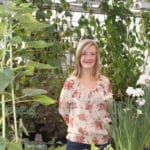
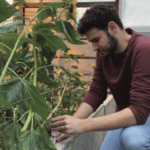


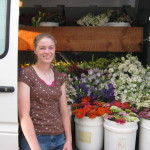

 Video Library
Video Library 




















